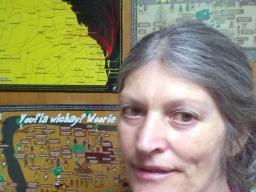Abstract
There has been growing acknowledgement of a connection between First Nations people’s languages and their well-being, based on Indigenous voices and other research, in Australia and overseas. However, the evidence that connects and quantifies the relationship between the use of Indigenous languages and users’ well-being is limited. In this presentation we focus on the Aboriginal and Torres Strait Islander languages part of this equation, in particular ‘language ecologies’. The considerable diversity in the present day patterns of everyday language use amongst Australia’s First Nations peoples is not well-captured in go-to sources for language data and is only inconsistently referred to in research and policy outputs. Yet this diversity means different kinds of languages are used in different configurations from place to place, which affects how languages interact with various indicators of well-being. Based on the work of our interdisciplinary team that includes quantitative research, human geography and linguistic expertise, this presentation unpacks the attributes of Aboriginal and Torres Strait Islander language ecologies and how we have operationalised these given the considerable constraints of available language data. We consider how language ecologies can illuminate linkages between the use of Indigenous languages and well-being in the context of regional-level language ecologies and individual language repertoires.
Other Research Team Members:
CAEPR: Danielle Venn, Francis Markham, Janet Hunt and Tony Dreise
CASS: Carmel O’Shannessy, Jane Simpson, Inge Kral, Hilary Smith and Emma Browne
Bios
Yonatan Dinku is a quantitative researcher at CAEPR. He holds MA in International and Development Economics from ANU and PhD in Economics from the University of Otago. His research interests lie at the intersection of development economics and applied microeconomics. Yonatan is currently working in projects (including the National Indigenous Languages Report) that look into the factors underlying Indigenous well-being and labour market outcomes.
Denise Angelo is an ANU PhD student who works and researches across diverse Aboriginal and Torres Strait Islander language ecologies. She currently works with First Nations teachers who teach their own Traditional Languages, with Aboriginal and Torres Strait Islander communities describing their New (contact) Languages and with schools teaching English as an additional language to Indigenous students. She is a member of ANU’s research team (CASS and CAEPR) that is contributing to the National Indigenous Languages Report in this International Year of Indigenous Languages.
Media
Location
Speakers
- Dr Yonatan Dinku & Ms Denise Angelo
Contact
- Annette Kimber6125 0587
Image Gallery
File attachments
| Attachment | Size |
|---|---|
| ecologiespresentation_final-1.pdf(1.16 MB) | 1.16 MB |

